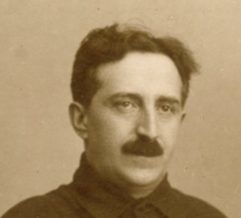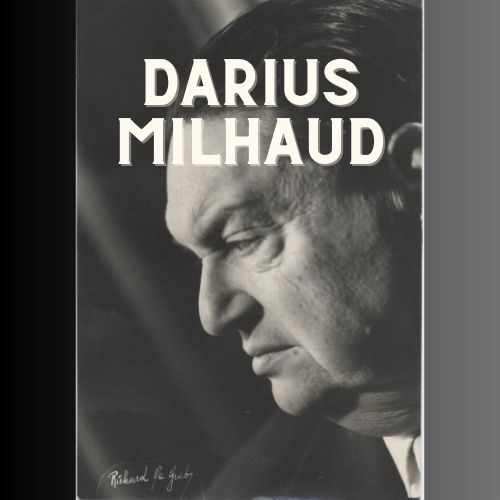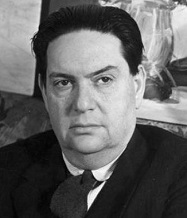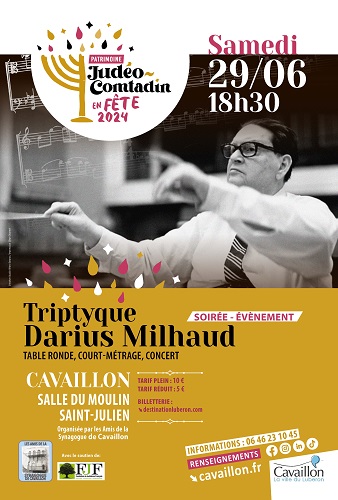
Alexander Krein (Aleksander Abramovič Krejn) was born on October 20, 1883 in the Russian city of Nizhny Novgorod. His father, Abraham, was a violinist with a passion for Jewish music, and seven of his ten children became professional musicians. After spending his childhood playing klezmer music in his father’s orchestra, Alexander Krein enrolled in the cello class of the Moscow Conservatory at the age of thirteen. He then studied musical theory and composition under the composers Sergey Taneyev and Boleslav Yavorsky. He obtained his diploma in 1908 and developed an especially original style of composition, which combined the harmonic language of modern composers, such as Debussy, Ravel and Scriabin, with melodies and modes of Jewish folk music, as testifies the composition of his two Evreiskie eskizi (Jewish Sketches) for clarinet and string quartet (1909 and 1910), based on his father’s klezmer repertoire, and commissioned by the composer Joel Engel.
Following the success of his works, Krein played a major role in the emergence of a Jewish national music as a composer and as an active member of the Moscow branch of the Society for Jewish Folk Music (1913-1919) and of its successor organization, the Society for Jewish Music (1923-1929).
After 1917, he composed numerous pieces, especially for the Hebrew Theatre Habima in Moscow and for the Yiddish theatres in Ukraine and Belorussia. During the 1920s, he wrote several important works, among which the symphonic cantata Kaddish (1921), the First Piano Sonata (1922) and the First Symphony (1922-1925).
In his compositions, Krein employed melodic improvisation and recitative rhythms from Eastern European Jewish folk and liturgical melodies to give his compositions a unique character, as can be heard in his Jewish Melody for cello and piano, Op. 43, composed in 1928.
While the Communist regime was becoming increasingly restrictive in terms of ideology at the end of the 1920s and in the 1930s, Krein made an effort to conciliate his art with the growing political pressure. Despite evident political compromises, such as the cantata Funeral Ode in Memory of Lenin (1926) and the symphonic oratorio Shock Brigade of the World Proletariat of the USSR (1932), Krein continued to explore Jewish musical and literary themes in his work until the 1940s. His opera Zagmuk (1929), which deals with the Jewish insurrection in ancient Babylon, was the first Soviet opera staged at the Bolshoi Theatre in Moscow (1930). In 1934, he received the honorary title: “Distinguished Artist of the Russian Federation”.
Krein composed the music for the productions of the State Yiddish Theatre in Moscow until 1941, and his Second Symphony (1945) is a meditation on the historic sufferings of the Jewish people from ancient times up until the Holocaust.
Sources: Loeffler, James, Pro Musica Hebraica
Browse our archives on Alexander Krein



